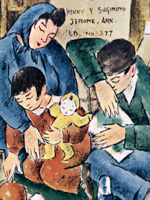Online Seminar: Choices in Little Rock
This seminar explores the Facing History and Ourselves resource book, Choices in Little Rock—a collection of teaching suggestions, activities, and primary sources that focus on the desegregation of Central High School in Little Rock, Arkansas, in 1957. These efforts led to a crisis that historian Taylor Branch once described as "the most severe test of the Constitution since the Civil War." These resources explore a range of civic choices—the decisions people make as citizens in a democracy. Those decisions, both then and now, reveal that democracy is not a product but a work in progress, a work that is shaped in every generation by the choices that people make about themselves and others. This workshop will consider ways to engage students in the issues raised by this history and its civic implications for their lives today. Choices in Little Rock can be used not only to teach history but also to deepen and enrich a study of civics, government, and literature.
